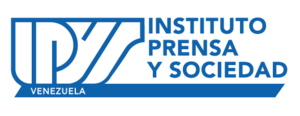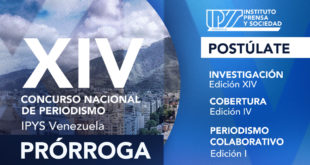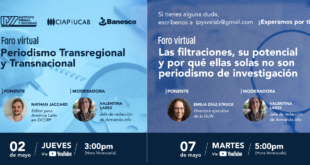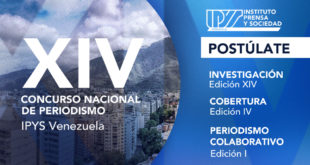Entre el 2 y el y el 7 de enero de 2013, representantes del Poder Ejecutivo, de manera recurrente, han acusado a los medios de comunicación nacionales y extranjeros de mentir, desconocer la titularidad del Presidente de la República Hugo Chávez y mantener una “campaña de desestabilización”, por el supuesto manejo “mal intencionado” de la cobertura informativa del estado de salud del mandatario y la situación de la conducción del país en su ausencia del territorio nacional, por su proceso de recuperación, en Cuba, tras la intervención quirúrgica a la que fue sometido, debido a una reincidencia del cáncer que padece desde mediados del 2011. Como consecuencia han advertido la posibilidad de tomar acciones contra los medios señalados, que podrían derivar en censura o restricciones para el ejercicio del trabajo informativo.
La mayoría de las declaraciones por parte de los altos funcionarios del Poder Ejecutivo, han sido emitidas en alocuciones oficiales, de radio y televisión, de obligatoria transmisión, según el artículo 10 de la Ley de Responsabilidad Social en Radio, Televisión y Medios Electrónicos. Estas alocuciones oficiales suelen ser reiteradas y tiene una duración prolongada, con lo que afectan la pluralidad de la información, al impedir que los ciudadanos puedan contar con una programación informativa variada e imponer un mensaje único. Por ello, dichas alocuciones resultan contrarias a los estándares internacionales de libertad de expresión. Así mismo, se ha evidenciado el uso reiterado de los medios estatales para la divulgación de mensajes en los que se criminaliza la labor informativa de la prensa nacional y extranjera.
Advertencias a los medios
El 5 de enero de 2013, en el marco de la juramentación de la nueva directiva de la Asamblea Nacional (Poder Legislativo), Nicolás Maduro, Vicepresidente de la República manifestó: “A los medios, a todos, apéguense a la verdad y no jueguen con candela (advertencia de no incentivar a la violencia). Nosotros que tenemos cargos públicos, vamos a actuar para que se respete al pueblo de Venezuela y al Comandante, quien tiene derecho a su privacidad y a recuperarse. Venezuela tiene derecho a la paz (…) Respeten la democracia”.http://www.telesurtv.net/articulos/2013/01/05/nicolas-maduro-todos-los-escenarios-que-vengan-los-enfrentaremos-victoriosamente-673.html/todos-los-escenarios-los-enfrentaremos/@@thumbnail_pequeno).
Por su parte, el 03 de enero de 2013, Ernesto Villegas, ministro de Comunicación e Información, en cadena nacional de radio y Tv, leyó un comunicado oficial que expresaba: “El Gobierno de la República Bolivariana de Venezuela advierte al pueblo venezolano sobre la guerra psicológica que el entramado mediático trasnacional ha desatado alrededor de la salud del Jefe del Estado, con el fin último de desestabilizar a la República Bolivariana de Venezuela, desconocer la voluntad popular expresada en las elecciones presidenciales del pasado 7 de octubre y acabar con la Revolución Bolivariana liderada por Chávez. Propósitos éstos que chocan con la férrea unidad del Gobierno Bolivariano, el pueblo organizado y la Fuerza Armada Nacional Bolivariana alrededor del liderazgo e ideario político del Comandante Hugo Chávez” (http://www.vtv.gob.ve/articulos/2013/01/03/gobierno-bolivariano-advierte-sobre-guerra-psicologica-en-torno-a-la-salud-del-pdte.-chavez-9904.html).
El 04 de enero de 2013, el movimiento Periodismo Necesario, coalición de comunicadores sociales y periodistas, que mantienen simpatía con la gestión del Presidente Hugo Chávez, manifestó que los medios privados tienen el “propósito de generar zozobra en la población” y realizan un manejo informativo inadecuado sobre la salud del primer mandatario nacional (http://www.ciudadccs.info/?p=370448).
Señalamientos contra medios internacionales
El Vicepresidente de la República en varias oportunidades, ha acusado a los medios internacionales de tratar de “crear incertidumbre” e “irrespetar” al pueblo venezolano. El 03 de enero de 2013, en una alocución oficial en cadena nacional Maduro señaló: “han salido artículos, declaraciones en diarios españoles como ABC (…) o Radio Caracol de Colombia, que todos los días irrespeta o pretende irrespetar el pueblo de Venezuela, que se meten con las cosas más sensibles de la vida del comandante Chávez, como lo son sus hijas, sus hijos, su madre, su padre, sus familiares. Radio Caracol, aquí al lado en Colombia, ha (utilizado) su página web (como) fuente de mentiras, manipulaciones, de campañas para tratar de crear incertidumbre”. En su línea discursiva contra la labor de la prensa nacional e internacional, Maduro agregó: “no exageramos cuando decimos que esos periodistas de esa ultraderecha tienen un alma miserable. Absolutamente, miserable, y responden a planes antipatria” (http://www.youtube.com/watch?v=aqthkWoLsjs).
También, se ha señalado a diversos periodistas por considerar que supuestamente se han dedicado “a especular y a inventar cosas” sobre el estado de salud del presidente. Entre los periodistas señalados figuran: Nelson Bocaranda, director del portal Runrun.es y locutor del circuito radial Unión Radio; Patricia Poleo, articulista del semanario privado 6to poder; Merval Pereira, periodista de O Globo, diario brasileño; Dan Rather, presentador del canal por suscripción AXSTV; y Ewald Scharfenberg, actual corresponsal en Venezuela del diario español El País. Así lo reseñó, el 7 de enero de 2013, el diario oficialista Ciudad Caracas, editado por la Alcaldía de Caracas, con base a declaraciones que ofreció Luis Bilbao, analista argentino, en un programa transmitido por Telesur, televisora con proyección latinoamericana que ha contado con el apoyo económico, logístico y técnico del gobierno venezolano (http://www.ciudadccs.info/?p=371218).
Acusación a dirigente político usuario de redes sociales
El 5 de enero de 2013, Nicolás Maduro dijo que diversos sectores de oposición buscan, por distintas redes sociales digitales, “sembrar dudas y confusión” para deslegitimar a las autoridades ejecutivas, y “crear zozobra” en la ciudadanía.
Asimismo, el 3 de enero de 2013, el vicepresidente responsabilizó a Ramón Guillermo Aveledo, representante de la Mesa de Unidad Democrática, plataforma que congrega diversas fuerzas políticas opositoras, de impulsar “las campañas de rumores y mal sanas que se inician por Twitter, por Facebook, por distintas vías de redes de comunicación. Él es el responsable de la campaña contra el presidente Chávez, en este momento, y así lo hacemos responsable frente a nuestro país”, afirmó. Estas acusaciones surgieron luego que representantes de la MUD ofrecieran una rueda de prensa, el 2 de enero de 2013, para fijar posición sobre el manejo político y comunicacional de la enfermedad del presidente Hugo Chávez.
Estas actuaciones de las autoridades ejecutivas del país, que estigmatizan la labor informativa de los medios de comunicación nacionales y extranjeros por la cobertura a la enfermedad del Presidente Hugo Chávez, comportan un riesgo para el pleno respeto, garantía y respeto a la libertad de expresión e información, según lo planteado en los artículos 57 y 58 de la Constitución de la República Bolivariana de Venezuela. Además, no se corresponden con los principios estipulados en la Declaración Universal de Derechos Humanos, el Pacto Internacional de Derechos Civiles y Políticos, y la Declaración de Principios sobre Libertad de Expresión.
El conjunto de acciones reiteradas por parte de representantes del poder ejecutivo en contra de los medios de comunicación evidencian un uso abusivo del poder estatal por la utilización sistemática de los medios estatales para agraviar y desacreditar la labor informativa de la prensa en Venezuela.
Etiqueta: uso abusivo del poder estatal, amenazas de acciones legales, uso de medios estatales para agraviar a periodistas y/o medios de comunicación.
___________________________________________________________________________
Lea la versión en inglés
Executive authorities accuse the press of attempting to destabilize, lying and disowning the authority of the President of the republic
Between January 2nd and 7th, 2013, representatives of the executive power have repeatedly accused national and foreign media of lying, disowning the authority and entitlement of the president of the republic Hugo Chávez and maintaining a “destabilizing campaign”, due to the alleged “maliciously intended” handling of the news coverage of the state of health of the ruler and the situation of the conduction of the nation´s affairs in his absence from the national territory due to his recovery process in Cuba, after his surgery to remove a recurrent cancer he is suffering since mid-2011. Consequently, they have warned as to the possibility of taking actions against these media, which could derive in censorship or restrictions in exercising their endeavors to inform.
The majority of the declarations by top officials of the executive power have been through official compulsory allocutions on radio and television as per article 10 of the law on the social responsibility of radio, television and electronic media. These official releases are usually repetitive and prolonged, affecting the plurality of information, preventing citizens from having varied news programming and imposing one single message. For this reason, said releases run counter to international standards of freedom of expression. Likewise, the repetitive use of state-owned media to disseminate messages in which the national and foreign press´ task of informing is being criminalized has become evident.
Warning to the media
On January 5, 2013, within the framework of the swearing in of the new group of directors of the national assembly (the legislative power), Nicolás Maduro, the vice-president of the republic, stated: “To the media, to all of them, stick to the truth and do not play with fire (a warning to not foster violence). Those of us in public positions shall act so that the people of Venezuela are respected as well as the commander in charge, who has a right to his privacy and to recuperate. Venezuela has a right to be peaceful (…) Respect our democracy”.http://www.telesurtv.net/articulos/2013/01/05/nicolas-maduro-todos-los-escenarios-que-vengan-los-enfrentaremos-victoriosamente-673.html/todos-los-escenarios-los-enfrentaremos/@@thumbnail_pequeno).
In turn, on January 3rd, 2013, Ernesto Villegas, the minister of communications and information, on a national radio and TV compulsory broadcast, read an official communiqué stating: “The government of the Bolivarian republic of Venezuela warns the people of Venezuela of the psychological warfare which the transnational media web has unleashed regarding the health of the head of state, with the ultimate aim of destabilizing the Bolivarian republic of Venezuela, disregarding the people´s will expressed in the presidential elections of October 7 and putting an end to the Bolivarian revolution led by Chávez. These purposes class with the ironclad unity of the Bolivarian government, the organized people and the Bolivarian national armed force around the leadership and political ideology of our commander Hugo Chávez” ( http://www.vtv.gob.ve/articulos/2013/01/03/gobierno-bolivariano-advierte-sobre-guerra-psicologica-en-torno-a-la-salud-del-pdte.-chavez-9904.html).
On January 4th, 2013, the movement entitled Periodismo Necesario, a coalition of social communicators and journalists sympathetic to the leadership of President Hugo Chávez, manifested that private media have the “purpose of generating agitation and restlessness in the population” and are inadequately handling the information on the health of the nation´s head of state (http://www.ciudadccs.info/?p=370448).
Pointing against the international media
In several opportunities the vice-president of the republic has accused the international media of attempting to “create uncertainty” and “disrespecting” the Venezuelan people. On January 3rd, 2013, during an official address of compulsory airing nationwide, Maduro pointed out that: “articles and declarations have been published in Spanish newspapers such as ABC (…) or Radio Caracol from Colombia, which every day disrespect or pretend to disrespect the people of Venezuela, they meddle in the most sensitive affairs of the life of commander Chávez, such as his daughters, his sons, his mother, his father, his family members. Radio Caracol, right here next to us, in Colombia, has (used) its web page (as a) source of lies, manipulations, campaigns to try and create uncertainty”. In its line of discourse against the work of the national and international press, Maduro added: “We are not exaggerating when we say that these ultra-right wing journalists have a miserable soul, absolutely miserable, and they respond to anti-nation plans” (http://www.youtube.com/watch?v=aqthkWoLsjs).
Several journalists have been pointed at since they allegedly have devoted themselves to “speculating and inventing stuff” on the health of the president. Among these journalists are Nelson Bocaranda, director of web portal Runrun.es and anchorman for radio circuit Unión Radio; Patricia Poleo, columnist of the private weekly newspaper 6to poder; Merval Pereira, journalist of O Globo, a Brazilian newspaper; Dan Rather, presenter at AXSTV and Ewald Scharfenberg, current correspondent in Venezuela for the Spanish daily El País, as pointed out on January 7, 2013, by the officialist daily Ciudad Caracas, edited by the mayor´s office of Caracas, based on declarations by Luis Bilbao, an Argentinian analyst in a program aired by Telesur, a TV station shown all over Latin America and which receives economic, logistics and technical backing by the Venezuelan government (http://www.ciudadccs.info/?p=371218).
Accusations to political leaders that use social networks
On January 5, 2013, Nicolás Maduro stated that diverse opposition sectors have sought, through various digital social networks to “sow doubt and confusion” to strip the executive authorities of their legitimacy and “create havoc” in the citizens.
Also on January 3rd, 2013, the vice-president named Ramón Guillermo Aveledo, representative of the Democratic Unity Party (Mesa de Unidad Democrática, or MUD, in Spanish), a platform that unites diverse opposing political parties, as the man responsible for promoting “the campaigns of rumors and nasty gossip that have been initiated on Twitter, Facebook, and other communication networks. He is the person responsible for the campaign against president Chávez at this time and so we make him responsible before the entire nation”, he affirmed. These accusations arose after representatives of the MUD offered a press conference on January 2nd, 2013, to give their position on the political and communicational handling of President Hugo Chávez´s illness.
These acts by the nation´s executive authorities, that stigmatize the work of informing by national and foreign media covering President Hugo Chávez´s illness, represent a risk to the full respect, warranty and respect of freedom of expression and information, as per articles 57 and 58 of the Constitution of the Bolivarian republic of Venezuela. Besides, they do not correspond to the principles stipulated in the Universal Declaration of Human Rights, the International Pact on Civil and Political Rights and the Declaration of Principles on the Freedom of Expression.
The set of repeated actions by representatives of the executive power against the media are evidence of an abusive use of the state´s power by way of the systematic use of state-owned media to offend, insult and discredit the press´s work of informing in Venezuela.
label: abusive use of the state´s power, the threat of legal actions, the use of state-owned media to offend and insult journalists and/or the media.
 IPYS Instituto Prensa y Sociedad Venezuela
IPYS Instituto Prensa y Sociedad Venezuela



